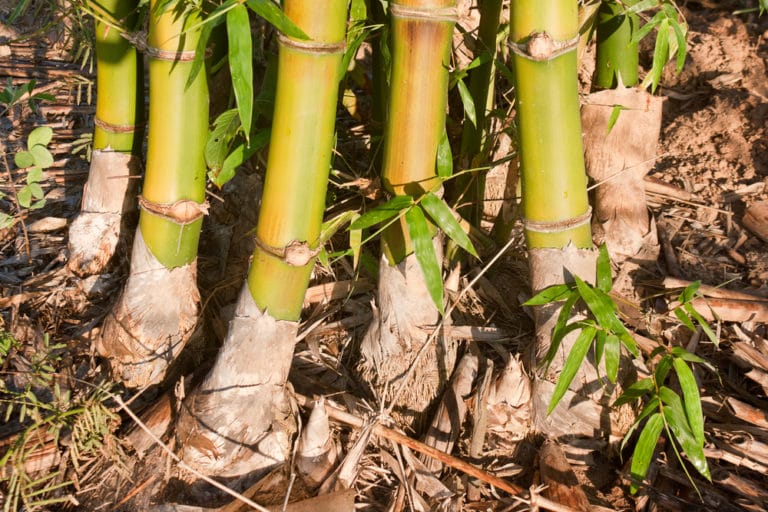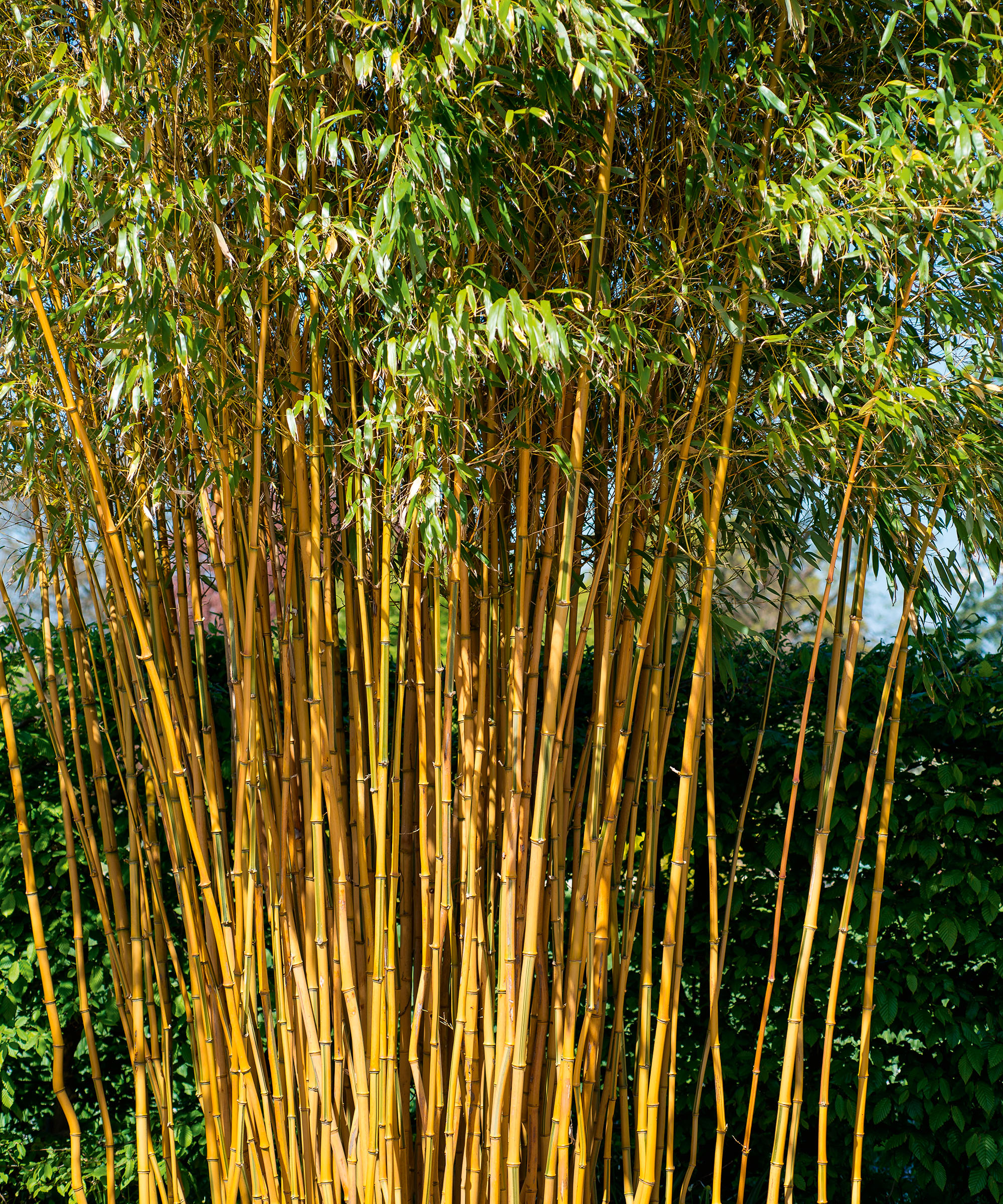Why Bamboo Can Be a Garden Nightmare
Let’s face it, bamboo can be beautiful, but it can also be a real headache for gardeners. This hardy plant is known for its rapid growth and invasive nature, often spreading far beyond where you originally planted it. If left unchecked, bamboo can encroach on your neighbor’s yard or take over your entire landscape. But don’t worry, there are ways to handle this green menace. In this article, we’ll walk you through how to control and eliminate bamboo, whether you’re dealing with a small patch or a full-blown invasion.
Your Plan of Attack: The Best Time to Strike
One of the keys to killing bamboo is timing. New shoots, also known as culms, only sprout during the spring. These young shoots look like little asparagus tips popping out of the ground. Once they reach about a foot tall, it’s time to strike. You can either cut them off at the base with a sharp blade or simply push them over with your foot. Doing this repeatedly will weaken the plant and prevent new growth. But that’s just the beginning. To fully eliminate bamboo, you’ll need to dig deeper and cut down all mature canes to the ground.
Chemical Warfare: Using Herbicides to Combat Bamboo
For those who prefer a more aggressive approach, herbicides can be a powerful ally in the battle against bamboo. Glyphosate-based herbicides, in particular, are highly effective. However, it’s important to apply them carefully to avoid harming nearby plants. Multiple treatments may be necessary, especially if you’re dealing with a large patch of bamboo. Remember, patience is key here. It may take two to three years of consistent effort to completely eradicate bamboo using this method.
Read also:Understanding The Curve Of Spee Curve Of Wilson And Monsons Sphere
Natural Solutions: Going the Eco-Friendly Route
If you’d rather avoid chemicals, there are plenty of natural ways to tackle bamboo. For instance, vinegar is a popular choice for many gardeners. Simply spray undiluted white vinegar directly onto the bamboo leaves and stems. Just be careful not to get it on other plants, as vinegar can be a potent weed killer. Another option is boiling water. Pouring boiling water directly onto the bamboo shoots can stress the plant and eventually kill it. This method requires persistence, but it’s a great way to avoid using harmful chemicals.
Other Natural Methods to Try
There are even more creative ways to control bamboo without resorting to chemicals. One idea is to deprive the plant of sunlight by covering it with tarps or thick plastic. This method, called solarization, can starve the bamboo of light and eventually kill it. Another approach is to dig a trench around the bamboo patch and cut through the rhizomes, which are the underground stems that allow bamboo to spread. This technique can help contain the plant and prevent it from encroaching on other areas of your yard.
Can Overwatering Kill Bamboo?
Believe it or not, overwatering can be an effective way to kill bamboo, especially if it’s growing in a pot or container. Bamboo doesn’t like soggy soil, and too much water can lead to root rot. However, if your bamboo is planted in the garden, simply flooding it with water won’t have much effect. The roots are too deep and extensive to be impacted by surface water. So, while overwatering can work in some cases, it’s not a guaranteed solution for every situation.
Animal Control: Do Livestock Eat Bamboo?
Animals like cows, horses, sheep, and goats may graze on grass and other plants, but they generally steer clear of bamboo. The tough, fibrous leaves and shoots aren’t appealing to most livestock. So, if you’re hoping to enlist your farm animals to help control bamboo, you might be out of luck. But don’t worry, there are plenty of other methods to try.
The Importance of Containment
Prevention is always better than cure, and when it comes to bamboo, containment is crucial. Installing a root barrier is one of the best ways to keep bamboo from spreading. A root barrier is essentially a vertical barrier buried in the ground around the bamboo patch. It should be at least 30cm deep and extend at least 30cm beyond the bamboo to ensure all rhizomes are contained. This simple step can save you a lot of headaches in the long run.
Why Bamboo Can Be So Difficult to Eradicate
Bamboo is native to Asia, where it thrives thanks to natural predators and diseases that keep it in check. But here in the U.S., bamboo has no such natural enemies, which is why it can quickly become invasive. Some varieties, like golden bamboo, are particularly notorious for their aggressive growth. Even if you manage to kill the above-ground parts of the plant, the underground rhizomes can continue to sprout new shoots. That’s why it’s so important to target the roots when trying to eliminate bamboo.
Read also:Discover The Extraordinary Journey Of John Bolz A Rising Star In Acting
Should You Use Poisons? Think Twice
I’ve heard some pretty wild suggestions about using gas or diesel to kill bamboo, but let me tell you, that’s a terrible idea. Not only is it dangerous, but it’s also unnecessary. There are much safer and more effective ways to deal with bamboo. Chemical herbicides, when used correctly, can be a powerful tool. But if you’re concerned about the environment or the health of your soil, there are plenty of natural alternatives to explore.
Wrapping It Up: Your Bamboo Battle Plan
Getting rid of bamboo isn’t easy, but it’s definitely doable with the right approach. Whether you choose to use herbicides, natural methods, or a combination of both, the key is persistence. It may take time and effort, but with a little patience, you can reclaim your yard from this tenacious plant. Stick around and use our guide to find the method that works best for you. And remember, prevention is key—consider installing a root barrier to keep bamboo from spreading in the first place.


